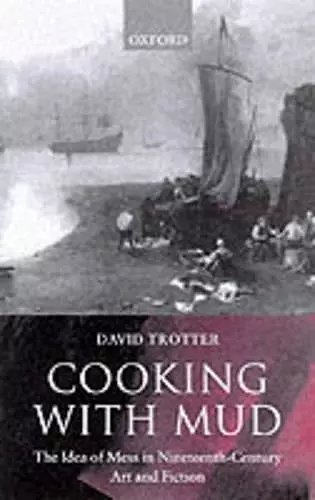Cooking with Mud
The Idea of Mess in Nineteenth-Century Art and Fiction
Format:Hardback
Publisher:Oxford University Press
Currently unavailable, and unfortunately no date known when it will be back

It seems safe to assume that people started to drop things as soon as they started to pick them up, and that even the most aboriginal litterings and spillages did not pass entirely without comment. Mess is age-old and universal, both as phenomenon and as topic. The evidence collected in this book suggests, however, that the second half of the nineteenth century saw the first stirrings in Western culture of a primary interest in mess for its own sake: a development which had something to do with the gradual fading, amid a great deal of reassertion, of doctrines of determinism; and something to do with democracy, which would be hard to imagine without litter. Messes, like modern identities, happen by accident; their representation, in painting and fiction, made it possible to think boldly and inventively about chance. Ranging widely–from Turner to Courbet, Cézanne, and Degas, and from Melville to Maupassant, Chekhov, Gissing, and the New Woman writers–this book outlines a style of commentary on modern life in which the ancient dichotomy of order and chaos (culture and anarchy) was supplanted, at least temporarily, by a distinction between different kinds and qualities of mess.
To the extent that relativity and randomness will emerge as the hallmark of twentieth-century art and fiction, Trotter has shown, in a most exemplary fashion, how these elements are rooted in the last four decades of the nineteenth century * Nineteenth-Century French Studies *
An impressive and useful book, witty, learned and elegantly written * Clive Wilmer, Times Literary Supplement *
ISBN: 9780198185031
Dimensions: 224mm x 146mm x 24mm
Weight: 608g
350 pages